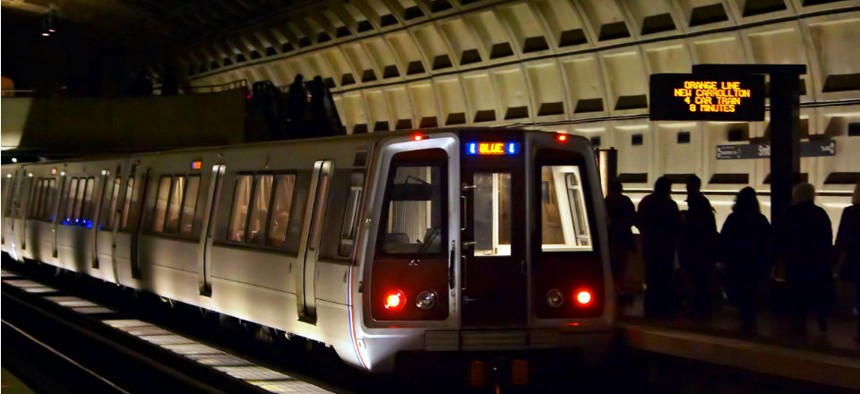
2265524729 / Shutterstock.com
Federal Employees Could Still Receive a Transit Benefit Boost This Year
IRS, lawmaker renew call for tax package that includes retroactively doubling mass transit benefit.
There may be hope yet for federal employees who saw their mass transit benefit cut nearly in half this year.
Internal Revenue Service Commissioner John Koskinen earlier this week stoked the fading embers of efforts to boost the benefit, when he wrote a letter to congressional leaders asking them to act on a variety of tax extenders.
The Senate Finance Committee in April approved the Expiring Provisions Improvement Reform and Efficiency -- or EXPIRE -- Act, a package including an array of temporary tax credits. While lawmakers have pushed to include the extensions in a larger reform of the tax code, the increased mass transit benefit remains a temporary boost requiring annual reauthorization.
Koskinen wrote in a letter to leaders of tax committees in both the House and Senate that a failure to extend the various tax credits could delay the start of the 2015 tax filing season. He called on lawmakers to decide whether to issue the extensions “no later than the end of November.”
“Making this decision in a timely manner with allow the IRS to implement Congress’ decision without unnecessary disruptions and delays to the upcoming 2015 tax filing season, and it will provide certainty for millions of taxpayers who are affected by the expired provisions,” Koskinen wrote.
The maximum mass transit benefit, available to all American employees, dropped from $245 to $130 per month on Jan. 1, after a provision of the fiscal cliff deal expired. Meanwhile, the monthly parking benefit actually increased by $5 to $250 for 2014. Republicans blocked the EXPIRE Act when it was brought to the Senate floor in May.
Congress could still pass something next year, retroactive to 2014, though Koskinen said the challenges raised by that approach “would be even more severe.” A retroactive fix would not be without precedent; a similar gap between mass transit and parking benefits also existed in 2012, though the disparity was eliminated after the fact by the fiscal cliff deal.
That deal, however, created significant confusion over exactly how the benefit would be issued retroactively. Ultimately, the IRS issued guidance for the steps both federal agencies and employees had to take to receive their subsidy.
This time around, because the benefit was automatically cut at the beginning of the year, any fix at this point would be retroactive in nature.
Employers who offer the tax benefit, including the federal government, do not dole out the benefits equally. Each agency is free to set its own maximum up to the federal limit. Individual employees can only receive -- and write off for tax purposes -- a subsidy in the amount they spend on transportation each month. As for parking perks, when an agency offers them, it typically comes down to supply and demand.
Senate Finance Committee Chairman Ron Wyden, D-Ore., called on Congress to “act swiftly” on the tax extenders to avoid “serious disruptions” in the tax filing season.
“As the 2015 filing season begins to loom large,” Wyden said, “it is more urgent than ever that Congress moves in a decisive and bipartisan way to renew expired tax provisions that will give taxpayers the certainty they need to plan their finances.”
The original transit benefit boost was created in 2009 in what is colloquially known as the economic stimulus package, which temporarily increased the subsidy from $115 to $230 per month.
(Image via 2265524729 / Shutterstock.com)







